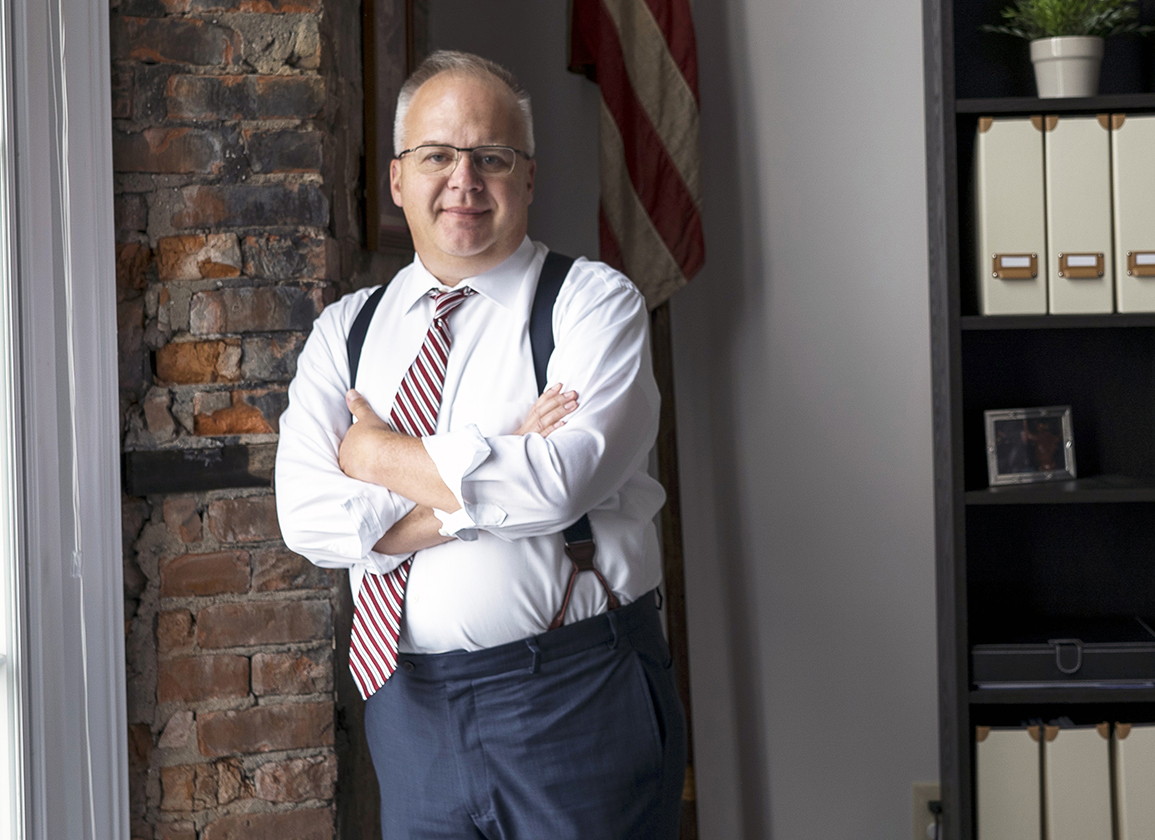Kentucky House Bill 607, which contains a provision to greatly benefit horseplayers by effectively eliminating breakage, was overwhelmingly approved Wednesday morning by a Kentucky House of Representatives committee. HB 607 also standardizes the tax rate on all pari-mutuel wagers placed in Kentucky and also makes claiming races eligible for Kentucky-bred purse subsidies. The bill must still be approved by the full House before being sent to the Senate.
Representative Adam Koenig, whose district in Northern Kentucky is near Turfway Park, is a primary sponsor of the bill, which also has the capacity to significantly increase revenue to the state General Fund while allowing horse racing to thrive.
“In a couple of years, we're looking at a $27-million increase, probably at a minimum,” Koenig told the committee, noting that's in addition to the $62 million projected to flow to the state from pari-mutuel taxes in 2022. “So the money is coming in from the industry. I think I found some creative ways generating additional money without hurting the product.”
The bill is the product of last year's legislative interim task force on pari-mutuel wagering that was chaired by Koenig and Kentucky Senate Majority Leader Damon Thayer, a long-time supporter of the Kentucky racing industry. Created following the passage of legislation that protected Historical Horse Racing (HHR) in the state, the task force was charged with identifying ways to increase state revenues without negatively impacting purses and without discouraging racetracks from investing in HHR operations and associated capital projects.
Penny Breakage A Positive Development…
A key element of HB 607 is the virtual elimination of so-called breakage, where tracks round down winning payoffs to the nearest dime based on a $1 wager. Under HB 607, tracks would be required to pay off to the nearest penny, resulting in greater amounts of money returned to horseplayers. Koenig cited the example of 2018 Triple Crown winner Justify paying $7.80 to win in the GI Kentucky Derby, a figure that would have been $7.92 with penny breakage.
“That is the bettors' money,” Koenig said. “I've been very interested since last year's HHR debate in making sure the bettors are taken care of. We took care of everyone else. Everyone is getting healthy on this except for the bettors, and this is how we're going to help the bettors. They're going to get paid to the penny rather than every 20 cents. In addition to taking care of the bettors, it will make Kentucky the place in North America to wager. If you're someone who wagers a lot of money, why would you bet anyplace else?” (Click here to watch Adam Koenig on a recent episode of the TDN Writers' Room podcast).
Also easily passing the “L&O” committee Wednesday were bills that would legalize betting on sports in Kentucky and provide funding for problem gambling.
Additionally, HB 607 calls for the taxation of pari-mutuel wagers at 1.5%, the same rate assessed for HHR gaming. The bill raises the current rate for bets placed through ADWs from 0.5%. The tax rate on simulcast wagers placed at a Kentucky track on an out-of-state race would drop from 3%. The majority of bets are now placed through ADWs, while simulcasting has shrunk considerably as horseplayers opt for the convenience of wagering online.
KTDF Supplements Expanded…
Currently, money from the Kentucky Thoroughbred Development Fund (KTDF) is restricted to non-claiming races, but HB 607 cancels that stipulation, a policy change that has been strongly advocated for by the Kentucky HBPA in an effort to raise purses for the lower-level races in which many horsemen compete.
Rep. Al Gentry, a member of the pari-mutuel wagering task force, called making claiming races eligible for KTDF supplements “very, very important and one of the big pieces of the bill.”
Given that HHR has helped Kentucky to be in a position to offer some of the highest purses in the world, and with HHR revenue expected to grow with the expansion of satellite facilities, HB 607 also stipulates that after KTDF money reaches $40 million and the Kentucky Standardbred Development Fund its $20 million in a year, the rate going to purses would decrease, with the difference channeled to the state's General fund.
“We believe in two or three years, when the Historical Horse Racing facilities are more mature, that we're looking at $20 million additional in the General Fund,” Koenig told the committee. “The increase in the ADW tax from one-half to 1 1/2% will immediately generate $4 million a year. That's the growth area, so that will continue to go up over time.”
Chair @repkoenig talking to press following successful Committee votes including pari-mutuel tax and breakage reform. pic.twitter.com/hACv8RpbrW
— Pat Cummings (@PatCummingsTIF) March 16, 2022
The bill also:
- Provides funding to the equine programs at the University of Kentucky and Bluegrass Community and Technical College. The University of Louisville business school's Equine Industry Program already receives funding from pari-mutuel wagering.
- Eliminates the 15-cent per person admission tax racetracks currently pay even if they don't charge admission (which is every track except Churchill Downs and Keeneland).
- Requires tracks to maintain a “self-exclusion” list–where individuals such as problem gamblers can say they don't want to be allowed into a track or HHR facility for a given period of time–to be shared with the racing commission and the other tracks and HHR properties.
Not a subscriber? Click here to sign up for the daily PDF or alerts.






